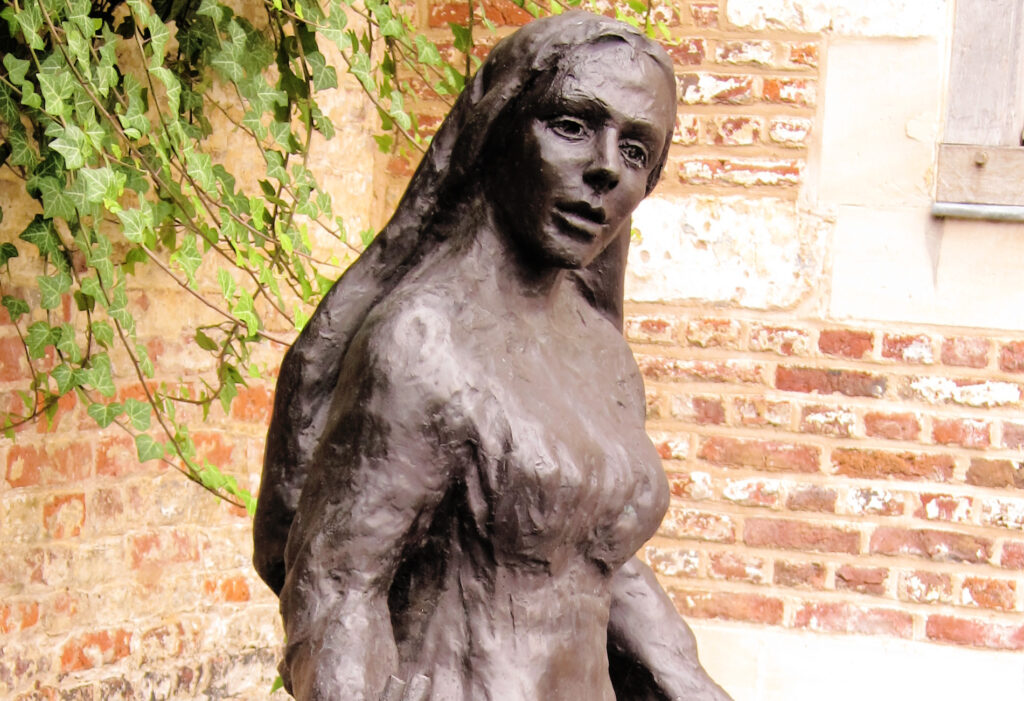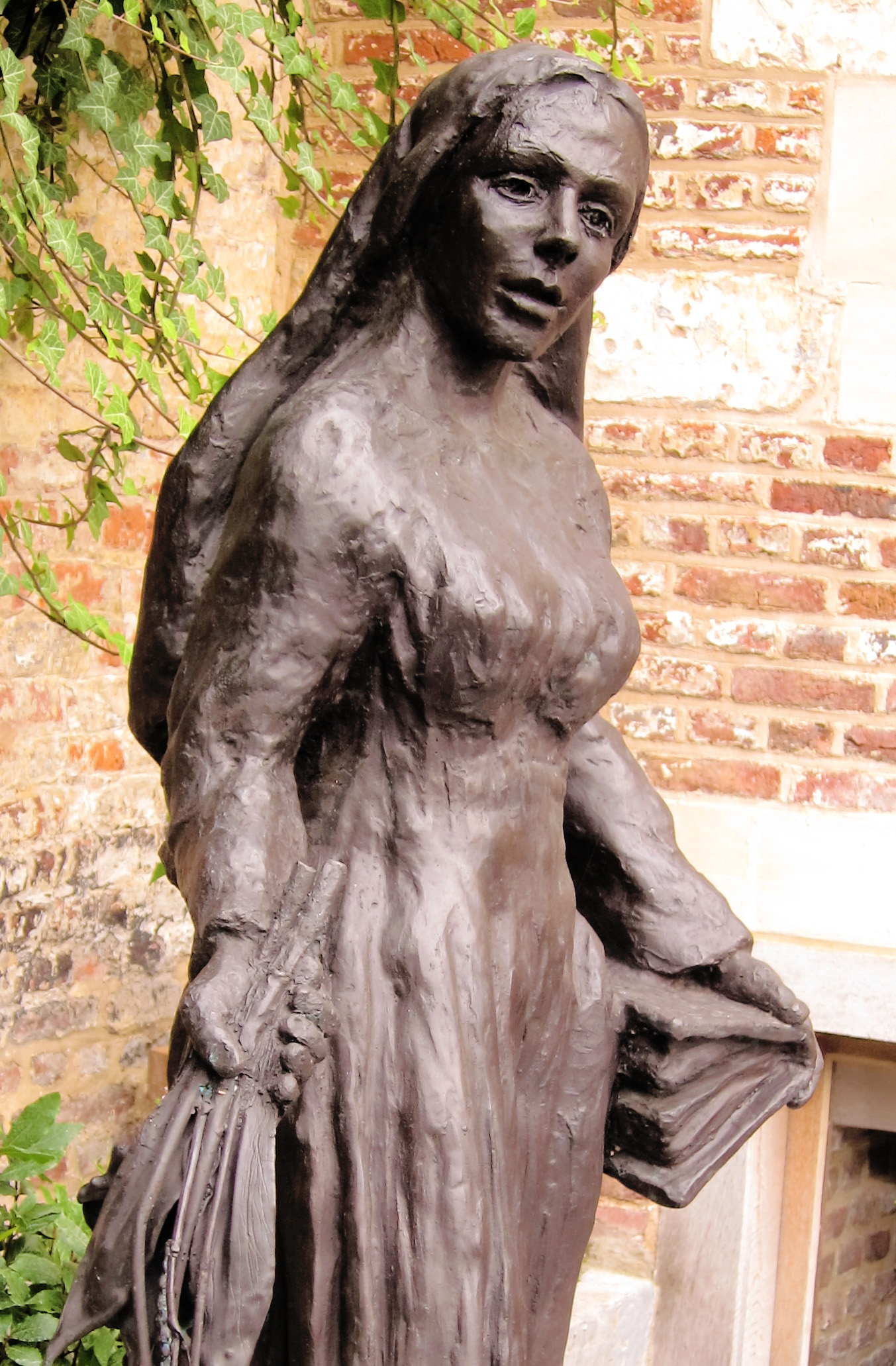
Link
tba [https://gepris.dfg.de/gepris/projekt/491803989]
Runtime
2022–2025
project participants
Institutions: Research Center for the History of Cologne, University of Cologne; CCeH. Project lead: Dr. Letha Böhringer. CCeH staff: Jan Bigalke, Jonathan Blumtritt, Benedikte Löbbert, Julia Sorouri.
Funding
Funded by the DFG.
Description
The aim of the DFG-funded project is to produce the most comprehensive presentation and data publication to date on the Beguines in Cologne from the 13th–15th centuries. The project is being carried out under the direction of Dr. Letha Böhringer at the Research Centre for the History of Cologne in cooperation with the Cologne Center for eHumanities.
Beguines were pious women who led a life of prayer and contemplation outside the monasteries and without enclosure. From the early 13th century, they lived in numerous towns in the German-speaking region and in Flanders. Cologne was a major center of beginal life.
The project is producing a monograph on the Beguines in Cologne, for which Dr. Letha Böhringer is responsible, and a database, which is being designed and developed at the CCeH. Both the monograph and the database are based on an extensive collection of data on 2100 known beguines, which was compiled over a period of 20 years from the analysis of the Cologne shrine books.
The CCeH prepares the data for analysis and publication. This includes the conversion from a proprietary to an open data format with a documented data model. The data mainly describe legal transactions, especially real estate transactions, in which beguines were involved. Indirectly, they represent an important prosopographical and urban topographical source. Due to the extraordinarily high density of records provided by the shrine books, entries can be correlated so that family and ownership relationships and location in the city can be traced over the period under observation. The aim is to process the data and make it publicly available in such a way that these networks and clusters become visible and usable in a way that would hardly be possible without IT support.
Publications
Löbbert, Benedikte, Jan Bigalke, and Jonathan Blumtritt. “Potentials of LLMs in dealing with Regesten”. Poster at the Workshop Machine Learning and Digital Humanities (CDS/CCeH), Cologne, July 5, 2024. https://cds.uni-koeln.de/en/workshops/mladh-2024.
Löbbert, Benedikte, Jan Bigalke, and Jonathan Blumtritt. “Mapping of Family Relationships and Topographical Information Using the Example of the Cologne Beguines”. Poster at the DH Benelux 2024 , Leuven, 2024. https://doi.org/10.5281/zenodo.11442110.
Bigalke, Jan, Jonathan Blumtritt and Tessa Gengnagel. “Beginen in Köln: Von der Textdatenbank zur zeitgemäßen digitalen Auszeichnung und Analyse”, in: Book of Abstracts of the 9th conference of the association “Digital Humanities im deutschsprachigen Raum” (DHd 2023), Trier, Luxembourg, 2023. https://doi.org/10.5281/zenodo.7715269. (Poster presentation: https://doi.org/10.5281/zenodo.7711482)
Böhringer, Letha. “Neues DFG-Projekt an der Forschungsstelle Köln”, in: Histrhen. Rheinische Geschichte wissenschaftlich bloggen (blog), March 28, 2022, http://histrhen.landesgeschichte.eu/2022/03/beginen-projekt-koeln/.
Böhringer, Letha. “Ein neues DFG-Projekt an der »Forschungsstelle Geschichte Kölns«: Beginen in Köln. Sozialgeschichte urbaner Frömmigkeit vom 13. bis zum 15. Jahrhundert”, in: Geschichte in Köln 69 (2022), pp. 347–54. https://doi.org/10.7788/9783412525699.347
Lectures / Interviews
Böhringer, Letha. “Is There Such a Thing as Beguine Mysticism? The Case of the Blessed Christina of Stommeln”. Delivered at the International Medieval Congress, Leeds, 2024. https://imc-leeds.confex.com/imc/2024/meetingapp.cgi/Paper/8400.
Böhringer, Letha. “Von der Projektgenese zur Datensicherung: Die Kölner Beginen in Urkunden und Schreinsbüchern”. Presented at the 8th Research Colloquium of the Research Center for the History of Cologne, 23 June 2023. s. Program of the 8th Research Colloquium.
Löbbert, Benedikte, Jan Bigalke and Jonathan Blumtritt. “Strategien für die digitale Datenaufbereitung anhand der Regesten im Beginen-Projekt”. Presented at the 8th Research Colloquium of the Research Center for the History of Cologne, 23 June 2023. s. Program of the 8th Research Colloquium.
Bigalke, Jan, Jonathan Blumtritt and Letha Böhringer. “Beginen in Köln”. Presented at DigMeth – Digital Methods and Social Topography in the Late Middle Ages and Early Modern Period, conference at the FU Berlin, Berlin, 18 June 2022. See conference report: Digitale Methoden und soziale Topographie in Spätmittelalter und Frühneuzeit, in: H-Soz-Kult, 23 September 2022, www.hsozkult.de/conferencereport/id/fdkn-129696.
Böhringer, Letha. “Beginen – Frauengemeinschaften im Mittelalter”, interview by Barbara Weber, Deutschlandfunk (21 April 2022), https://www.deutschlandfunk.de/beginen-frauengemeinschaften-im-mittelalter-interv-dr-letha-boehringer-dlf-ca4a8b47-100.html.
Picture credits
Photo: Letha Böhringer. Statue in the beguinage in Tongern, Belgium.
